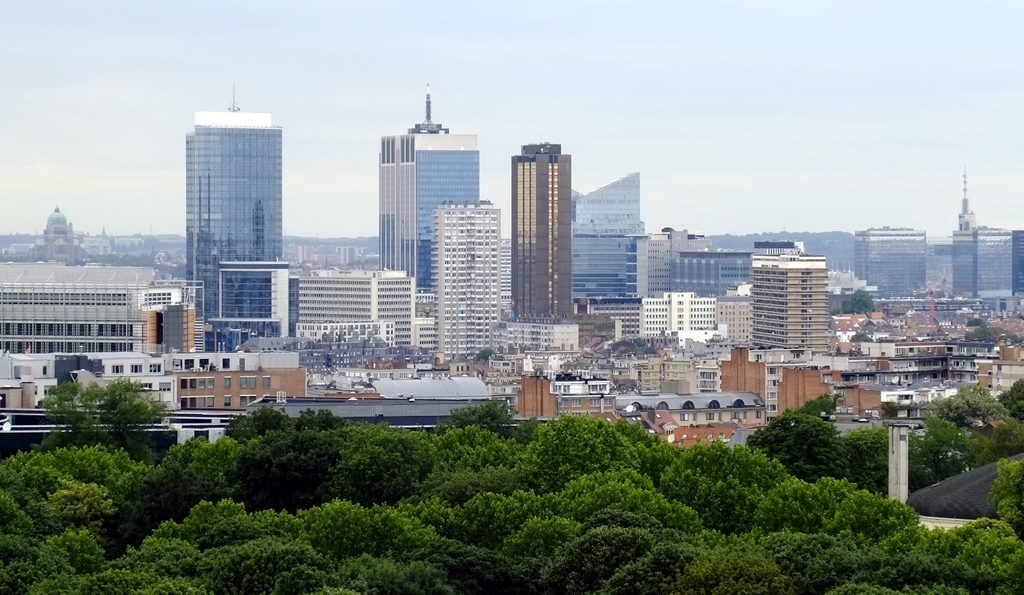While three elections will be taking place all at once in Belgium this weekend, the regional ones will take a slightly different shape in the Brussels-Capital Region than in the rest of the country.
After months of campaigning, everyone eligible to vote in Belgium will head to the polls to cast their vote in the European, federal and regional elections on Sunday.
The political parties and candidates that people are able to choose from will depend on the province they live in, there is an added layer of difference for Brussels as five points set the Capital Region apart from the rest of the country when it comes to voting.
1. Brussels citizens can choose between French-speaking and Dutch-speaking parties
People casting their vote in any of the polling stations in the Capital Region have the choice between voting in the Dutch-speaking and French-speaking electoral lists – meaning they have a wider choice of political parties than elsewhere in the country.
While political parties often focus on the language on people's ID cards to decide whether to target them with Dutch-speaking or French-speaking electoral flyers, the language people speak at home, school/work or with their local authorities does not matter when going to the polls: they are free to choose which language list to vote on.
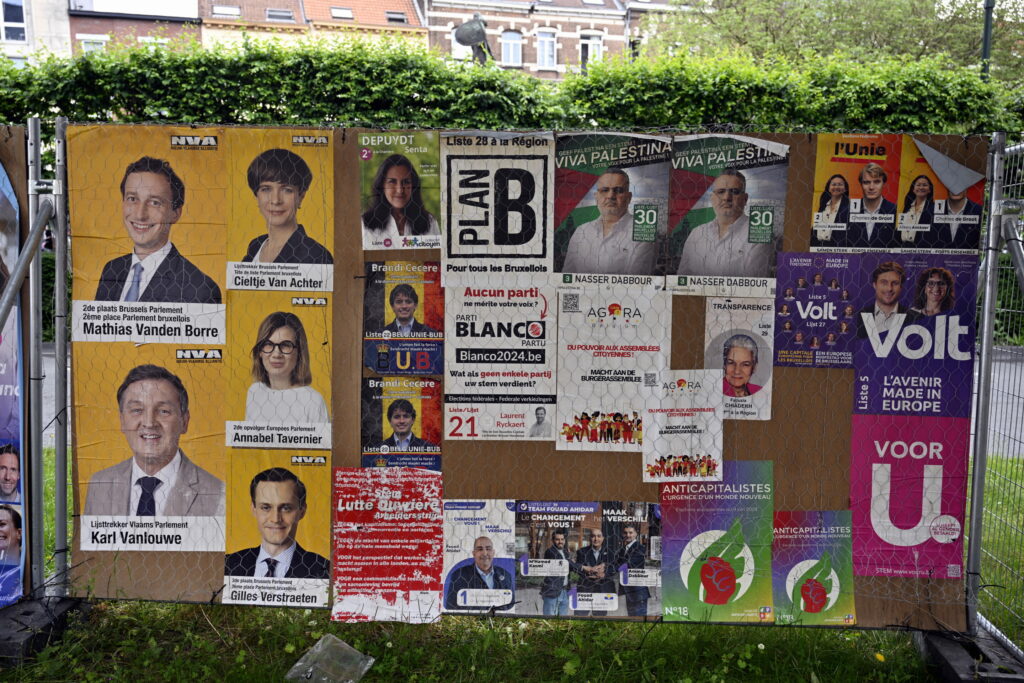
Credit: Belga/Eric Lalmand
Still, the number of people voting on Dutch-speaking lists is significantly lower than those casting their vote on the French-speaking ones – even if the figures show that after years of decline, the number of voters expected to vote on a Dutch-speaking party is on the rise again, along with the general number of Dutch-speakers in Brussels.
During the last elections in 2019, 15.3% of all eligible voters in Brussels voted for a Dutch-language list, accounting for some 70,000 votes.
2. Fixed seats for Dutch speakers
There are 89 seats in the Brussels Parliament. Of those, the fixed number of 17 seats (roughly 20%) are reserved for Dutch speakers, while the other 72 go to French speakers.
This arrangement is the result of the 2001 Lombard agreement (named after Rue du Lombard, where the Brussels Parliament is located), in which more guarantees for the Dutch-speaking minority in Brussels were agreed upon.
In turn, this Flemish representation is balanced by guarantees for French speakers in the Federal Parliament, where Francophone MPs are in the minority – a true compromis à la belge.
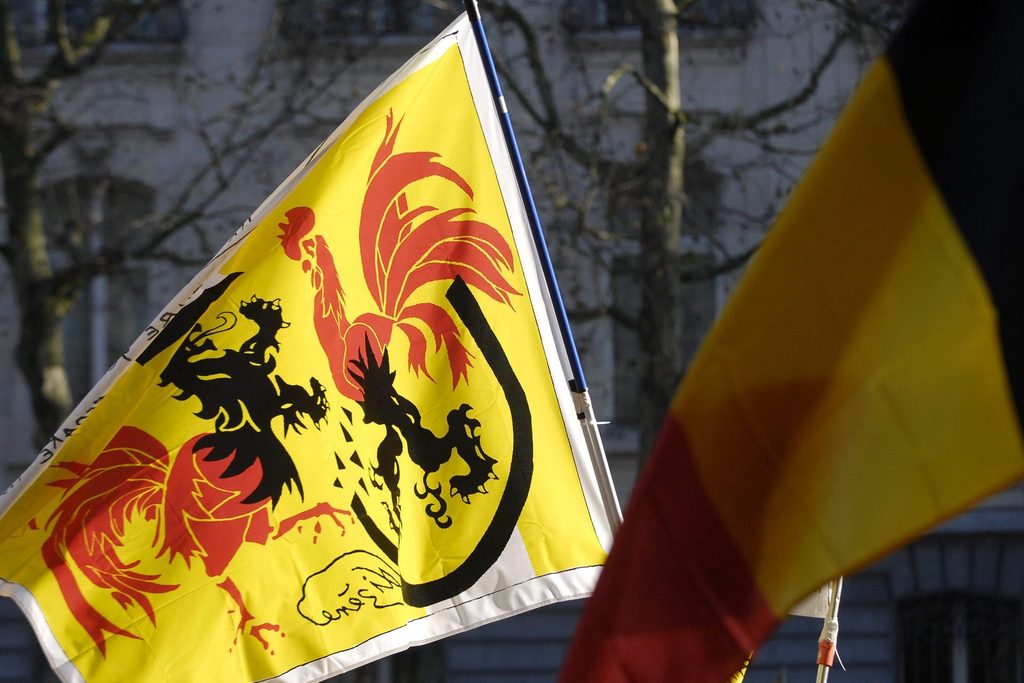
A flag combining the Flemish lion and the Walloon rooster during the 'March for Unity' in 2007 in Brussels. Credit: Belga/ Drk Waem
However, the result of the arrangement is that Dutch-speaking candidates need significantly fewer votes than French-speaking ones to get their seats in Parliament – giving Dutch speakers an advantage.
So whether 10,000 or 100,000 people vote for a Dutch-language list this weekend, 17 of the 89 parliamentary seats in the Brussels-Capital Region will go to Dutch-speaking politicians.
3. Some Brussels voters can also vote for the Flemish Parliament
People deciding to vote for a Dutch-language list in Brussels get an extra vote, because they will also have to vote for the Brussels members of the Flemish Parliament (six seats).
In the plenary sessions of the Flemish Parliament, those six Dutch-speaking Brussels MPs are only allowed to vote on Flemish Community matters – the so-called "soft" matters, which deal with everything related to persons and more broadly, everything cultural (ie. the bonds that unite population groups): education, health and welfare, culture, languages and sports.
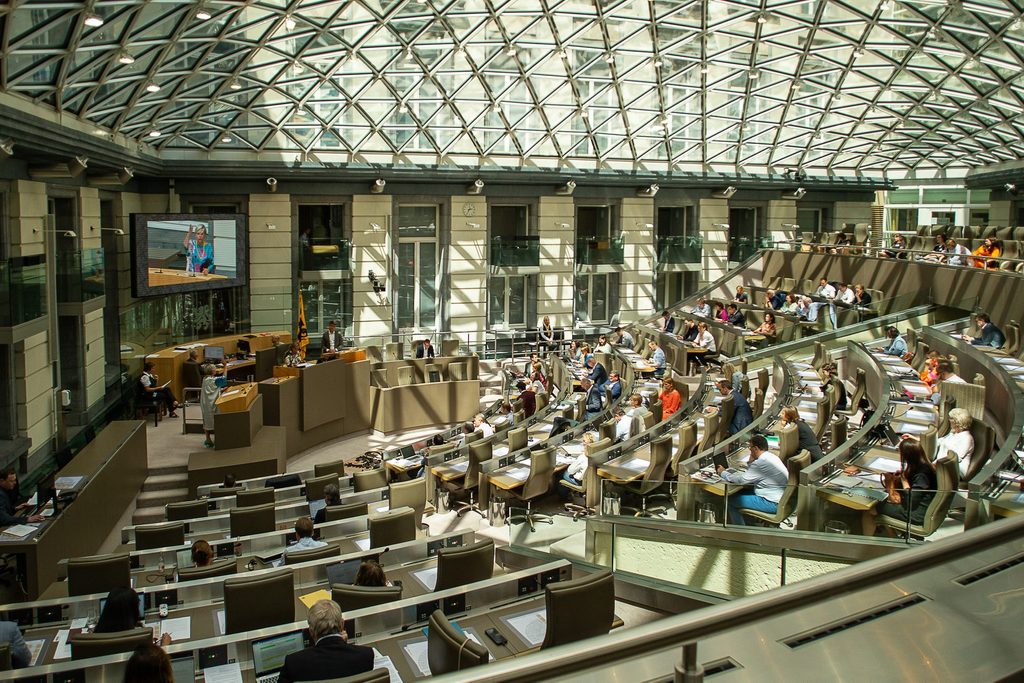
Plenary session of the Flemish Parliament. Credit: Belga/James Arthur Gekiere
As these six MPs do not live in the Flemish Region, they are not allowed to have their say on Flemish Regional matters – the so-called "hard" matters: economy, employment, urban planning, mobility, infrastructure, environment and housing.
This arrangement is the result of the Flemish Region and the Flemish Community deciding to merge their parliaments and governments as soon as they were created in 1980 (as opposed to the Walloon Region and the French-speaking Community, which stayed separate).
4. A majority in both languages
As with all governments, a majority is needed to be able to form one. In the case of Brussels, however, a majority is also needed per language – making an already complicated process even more complex.
In practice, this means that 45 (of the 89) seats are needed to form a Regional Government. But of those 45 seats, at least nine (of the 17 reserved for Dutch speakers) must be held by Dutch-speaking politicians, while at least 37 (of the 72 others) must go to French speakers.
5. Brussels chooses 15 representatives in the federal elections
In the federal elections, Belgian citizens vote for politicians to get one of the seats in the Federal Parliament. Of the 150 seats to be distributed, 15 must come from Brussels.
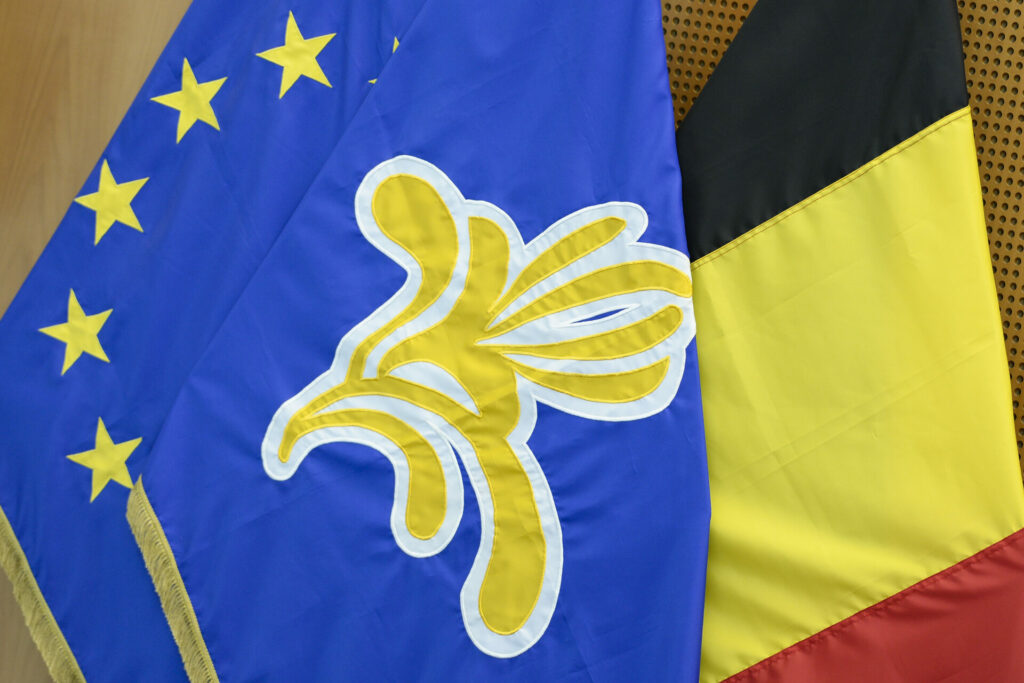
Brussels flag on top of Belgian flag. Credit: Belga/Thierry Roge
Those 15 representatives can theoretically be Dutch-speaking or French-speaking but in practice, they are virtually always people from French-speaking parties or "united lists" such as Ecolo-Groen or PTB-PVDA.
This is due to the electoral threshold: someone must receive at least 5% of the votes to be elected. As it is mainly Dutch-speaking people voting for Dutch-speaking candidates, and the number of Dutch-speaking people in Brussels is significantly lower than French-speakers, the chances of a Dutch-speaking candidate getting to that 5% threshold is rather low.

